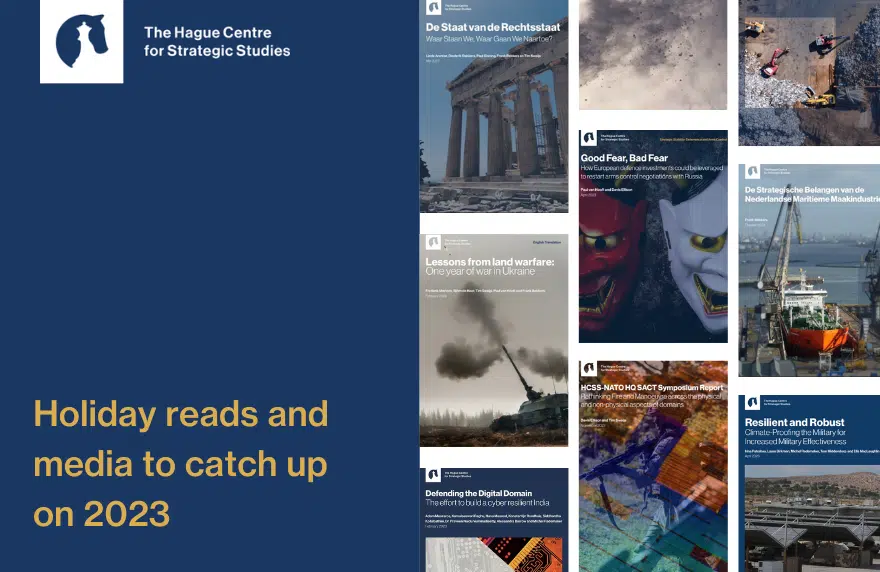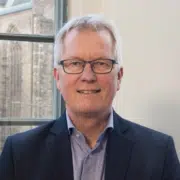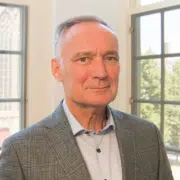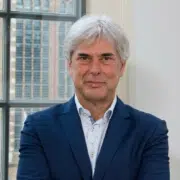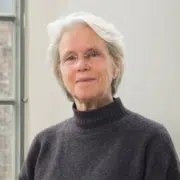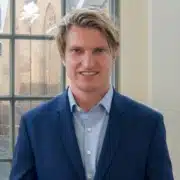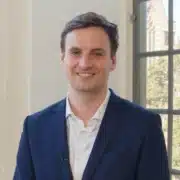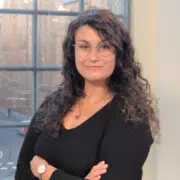The 2023 HCSS Annual Report showcases the entirety of HCSS’s efforts throughout the year. However, if you’re pressed for time and unable to peruse the complete report but still wish to familiarise yourself with some of the notable HCSS content you might have overlooked, we’ve outlined key publications, events, podcasts, and videos in each category below!
Geopolitics and Geo-Economics
Paper Series: Assessing Europe’s Naval Presence edited by Paul van Hooft and Alessandra Barrow
With China playing a more dominant role in the Indo-Pacific region, American supremacy has declined, posing a new challenge to European countries whose economic future and geopolitical relevance are linked to developments in the Indo-Pacific. However, it remains unclear what role Europeans should play in the Indo-Pacific given the modest size of the European navies compared to the US or China. In this paper series edited by senior strategic analyst Paul van Hooft and Alessandra Barrow, six authors from across Europe, the US and Asia addressed the prospects and strategy of a European naval presence in the Indo-Pacific.

First paper in the series: Why should Europe guard the Indo-Pacific Maritime Commons: Order, Access, or US hegemony? by Paul van Hooft, Tim Sweijs, with contributions from Laura Elisa Niemann.
Europe face difficult choices in the Indo-Pacific, as the Sino-American competition intensifies and the multilateral order that protects the freedom of the seas comes increasingly under threat. This paper argues that Europeans need to more clearly formulate their objectives and develop policies based on a realistic view of their capabilities before embarking on a long-term commitment in the Indo-Pacific. This paper examines 3 distinctive objectives: (1) upholding the maritime order, (2) ensure that Europe maintains access to key Asian economies, and (3) support for U.S. hegemony. The authors offer a number of solutions with which Europeans can compensate for their lack of naval capabilities and consider serious maritime engagement in the Indo-Pacific. For example, European states, like the UK and France, should more effectively share and pool infrastructure in the region and rotate their forces in and out.
The Socio-Political Instability Observer: September 2023 by Alessandra Barrow, Anna Sophie den Ouden and Tom Connolly
The second edition of the Observer highlights the continued importance of Russia’s invasion of Ukraine as a significant factor in shaping expert perceptions of global socio-political instability in the short term. Russia and Ukraine are seen as major sources of instability, through the worsening of the war in Ukraine and the conflict’s role as a catalyst for geopolitical bloc forming. However, experts do not perceive that the war in Ukraine is likely to escalate into a wider Russia-NATO confrontation any time soon. Africa, particularly Middle Africa, continues to be seen as a major source of future socio-political instability, with a number of coups in September highlighting how volatile situations can escalate and inspire other armed events. This potential for volatility around the world is heightened by perceptions of a retreat from multilateralism and a lack of ‘international community’, also highlighted in the previous May Observer.


De Strategische Belangen van de Nederlandse Maritieme Maakindustrie by Frank Bekkers. With contributions by Tara de Klerk, Rob de Wijk, Michel Rademaker and Paul Sinning.
What is the economic significance of the Dutch maritime manufacturing industry? What are the strengths, weaknesses, opportunities and threats of and for the maritime sector? At the request of the Ministry of Economic Affairs and Climate, HCSS has conducted research into the strategic interests of the maritime manufacturing industry (MMI), in the context of the desire of various House of Representatives motions to achieve a more integral national maritime industrial policy, including naval construction. From a number of strategic perspectives, this report elaborates which knowledge areas and which industrial capacities should be invested nationally as much as possible in order to safeguard the vital interests of national security in the Netherlands. Finally, in an international comparison, the report provides insight into how a number of other European countries – France, Germany, Italy, Spain, UK, Norway and Sweden – have designed their industrial policy around the maritime sector, as a possible mirror for the Dutch policy to be developed.
De Strateeg: Hoe Nederland de maritieme maakindustrie weer kan laten floreren
Nederland heeft veel cruciale sectoren om onze veiligheid te vergroten en onze economie te verstevigen. Zeker in tijden waarin er geopolitiek van alles veranderd. 1 van die sectoren is de maritieme maakindustrie. De laatste jaren hebben Chinese bedrijven het voor Nederlandse ondernemers een stuk lastiger gemaakt. Hoe kan de sector in Nederland weer gaan floreren? Dat ga je horen in deze aflevering van De Strateeg van Marja van Bijsterveldt, tot voor kort speciaal gezant voor de maritieme maakindustrie en Roel de Graaf, directeur van brancheorganisatie Netherlands Maritime Technology (NMT).

Economic and maritime security in the Indo-Pacific: Connection between Europe and East Asia

Economic Security in the Indo-Pacific | Securing Critical Raw Material for the Energy Transition
Watch the panel discussion on the HCSS YouTube: What would be the impact on the Japanese and European energy transition of a disruption in the critical raw material supply chain? This question was explored by Mr. Kotaro Shimizu, Chief Analyst, Mitsubishi UFJ Research and Consulting, Ms. Abigail Wulf, Vice President and Director, Center for Critical Minerals Strategy US SAFE, and Mr. Jeff Amrish Ritoe, Director Corporate Business Development at WMC Energy Nederland, during our webinar last week. The speakers also explored how Europe and Japan can better work together to enhance security of supply. On the 27th of January HCSS brought together experts from Japan, the US, and Europe to discuss economic and maritime security in the Indo-Pacific. Two panels of experts talked about the potential for cooperation between Europe and Japan on supply chains of access to critical raw materials for the energy transition as well as the maintaining of open sea lines of communication in the Indo-Pacific.
Security in the Indo-Pacific | Maintaining open waterways: Cooperation between Europe and Japan
Watch the panel discussion on the HCSS YouTube: Maintaining open waterways in the Indo-Pacific: Cooperation between Europe and Japan On the 27th of January HCSS brought together experts from Japan, the US, and Europe to discuss economic and maritime security in the Indo-Pacific. Two panels of experts talked about the potential for cooperation between Europe and Japan on supply chains of access to critical raw materials for the energy transition as well as the maintaining of open sea lines of communication in the Indo-Pacific. How can free and open sea lines of communication in the Indo-Pacific be maintained? Mr. Masafumi Iida, Head, America, Europe, and Russia Division, Regional Studies Department, National Institute for Defence Studies, Ms. Celine Pajon, Research Fellow Head of Japan Research at IFRI, an Mr. Paul Van Hooft, Senior Strategic Analyst at HCSS and Chair of the HCSS Europe in the Indo-Pacific Hub, elaborated on the crucial role of the maritime routes connecting Europe and East Asia.

Climate and Security

Resilient and Robust: Climate-Proofing the Military for increased military effectiveness by Irina Patrahau, Laura Birkman, Michel Rademaker, Tom Middendorp and Ella MacLaughlin; with contributions by Richard Nugee, Sharon Burke, Richard Brewin and Eric Engelbrecht.
Since the Ukraine war, there has been a growing recognition of the importance of climate proofing the armed forces as a precondition for operational effectiveness, rather than as a positive side effect. Energy security is now a priority of NATO and the EU. This HCSS report, made possible by a financial contribution from the Luxembourg Government, shows how new technologies can help armed forces reduce their carbon and logistical footprint, while maintaining – or even strengthening – their operational effectiveness. Better incentives for green innovation can help to reduce costs and improve operational capability at the same time.
Understanding the Pathway from Water Insecurity to Urban Migration in Southern Iraq by Toka Mahmoud, Irina Patrahau, Alicia Vignali, with contributions from Laura Birkman, Judith Blaauw, Frederique de Groen, Susanne Schmeier, Tobias von Lossow and Rolien Sasse.
In southern Iraq, decades of water insecurity have influenced migration patterns by endangering agricultural output and the livelihoods of farmers. While a direct link between water insecurity and migration cannot be drawn, water insecurity may indirectly increase migration patterns by impacting individuals’ livelihoods, health, energy and food security. Learn more about what the Iraqi authorities and the private sector can do in a new update from the Water, Peace and Security (WPS) partnership.

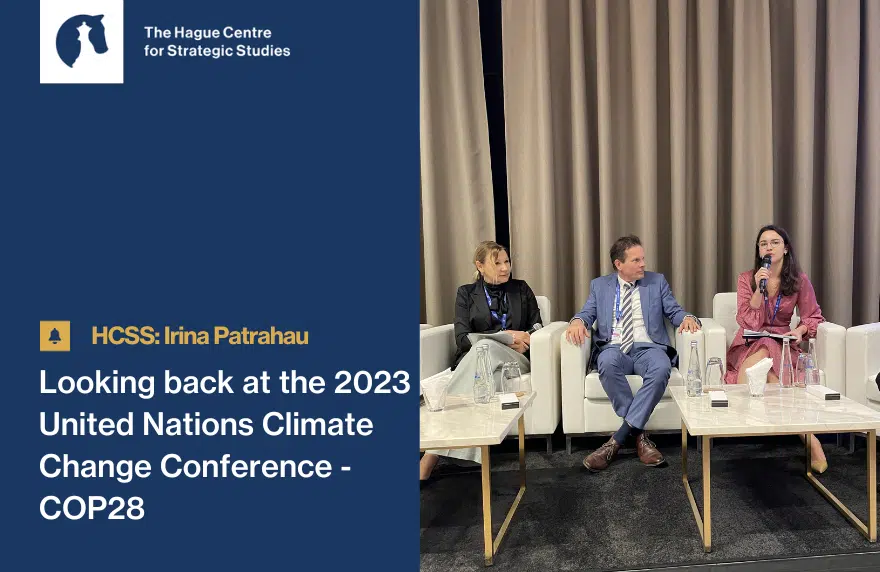
HCSS @ COP28 – 2023 United Nations Climate Change Conference
The 2023 United Nations Climate Change Conference, more commonly referred to as COP28, was held from 30 November until 12 December 2023, at the Expo City in Dubai. This 28th edition of the conference was intended for governments to agree on policies to limit global temperature rises and adapt to impacts associated with climate change. HCSS was proud to co-organise several side events during the COP28. Read HCSS’s key messages for COP28 here, and its recap of COP28 here.
Defence and International Security
Lessons from Land Warfare: One Year of War in Ukraine by Frederik Mertens, Björn de Heer, with contributions by Tim Sweijs, Paul van Hooft and Frank Bekkers.
What preliminary lessons can we learn after one year of war in Ukraine? After the Russian invasion of neighbouring Ukraine, a large-scale and even nuclear war in Europe is no longer unthinkable. In this analysis Frederik Mertens and Björn de Heer (with contributions from Tim Sweijs, Paul van Hooft and Frank Bekkers) consider land combat, given the war in Ukraine has proven predominantly about defending, conquering and retaking territory. This paper addresses the preliminary lessons for land operations that can be drawn from this war. The paper highlights that whilst the war in Ukraine is not the only template for future wars, the combination of threat and impact of this type of large-scale conventional war requires preparation for a worst-case scenario. In het Nederlands, vindt u de publicatie hier. Watch the Dutch video summary here.


Good Fear, Bad Fear: How European defence investments could be leveraged to restart arms control negotiations with Russia by Paul van Hooft and Davis Ellison. Contributors: Adam Meszaros and Michal Gorecki.
What is the potential for European investments in advanced conventional weapons that could incentivise Russia back to the negotiating table? The European nuclear arms control regime is in bad shape, due to the end of the INF Treaty (Intermediate-Range Nuclear Forces Treaty), the ABM Treaty (Anti-Ballistic Missile Treaty), the CFE Treaty (Treaty on Conventional Armed Forces in Europe), and even the START Treaty (Strategic Arms Reduction Treaty). Russia has invested heavily in new technologies and the United States wants China to be included in any future agreements, while China has shown no interest. This brief explores the potential of competitive approaches to arms control. A competitive approach to arms control is built on the assumption that an actor recognises that its long-term future security is looking progressively worse if they do not act now to stabilise the qualitative and quantitative military balance of power.
Pathways to Disaster: Russia’s War against Ukraine and the Risks of Inadvertent Nuclear Escalation by Paul van Hooft, Davis Ellison and Tim Sweijs. Contributors: Adam Meszaros and Michal Gorecki.
The risk of inadvertent nuclear escalation due to actions in the conventional domain is a serious, and underrated, feature of the current stand-off between NATO and Russia, following Russia’s 2022 invasion of Ukraine. This brief by HCSS analysts Paul van Hooft, Davis Ellison, and Tim Sweijs notes that NATO leaders and armed forces need to be conscious of unintended signals that can follow the placement of weapons, the movement of forces, and support to Ukraine, especially considering the deteriorating state of Russian armed forces.


Rethinking Fire and Manoeuvre across the physical and non-physical aspects of domains
How should we think about the future of war? Is there a new revolution in military affairs? How much can we really learn from contemporary conflicts? Is NATO ready for its next challenges? This conference report offers a consolidated review of the discussions held during the seminar “Rethinking Fire and Manoeuvre across physical and non-physical aspects of domains”, organised by HCSS in partnership with NATO Headquarters Supreme Allied Command Transformation (HQ SACT) on 27 September 2023. A core conclusion of this symposium is that NATO will be challenged, in its current approaches and thinking, to engage in the type of high-intensity war seen in Ukraine. However, we should not overlearn from current wars. The character of a war is inherently bound up in its unique political ends, geographies, actors, and ways of warfighting. Better thinking on how to use fire and manoeuvre (in both its physical and non-physical aspects) and on how to build necessary capacities can open a window into turning Europe’s latent military potential into something real.
The State of the Rule of Law: where are we, where are we going? by Linde Arentze, Diederik Dekkers, Paul Sinning, Frank Bekkers and Tim Sweijs. With contributions from: Arnoud van Bree, Eline de Jong, Laura Jasper and Tara de Klerk.
Pressure on democratic constitutional states appears to be increasing globally, as evidenced by the recent storming of government buildings in the US and Brazil. Although the Dutch rule of law scores consistently high on an international level, social dynamics show signs of erosion.This HCSS report examines the current state of the Dutch rule of law based on literature research and data analysis. While the analysis does not indicate an inevitable slide in rule of law health, it clearly points to signs of erosion.


Podcast: Disentangling Disinformation with Laura Jasper
What is disinformation, how does it work, and why does it matter? Disinformation and misinformation are nothing new, it’s had many names and guises, but Russia’s invasion of Ukraine has brought conflict into our media like never before. With that comes a barrage of disinformation. In this first episode of the new podcast series “Disentangling Disinformation” produced by the British Embassy in the Netherlands, HCSS strategic analyst Laura Jasper pins down what disinformation is and what it is not, how it works and how we can prepare ourselves for it.
Opinion | Buy smarter to compensate for dwindling Weapons Supplies by Paul van Hooft, Frederik Mertens and Adam Meszaros
European countries must not only invest more in weapons and ammunition supplies quickly, but also coordinate their purchases better, write HCSS strategic analysts Paul van Hooft, Frederik Mertens and Adam Meszaros in an op-ed for NRC. More coordination in purchases gives Europeans a better negotiating position vis-à-vis the arms industry. This way, costs can be reduced without sacrificing combat power. This also reduces the arms industry’s uncertainties about long-term demand, allowing the cost price to be further reduced. The biggest European war in decades and the collapse of the security order should provide sufficient motivation.

Energy and Raw Materials

Strategic Raw Materials for Defence: Mapping European Industry Needs by Benedetta Girardi, Irina Patrahau, Giovanni Cisco, Michel Rademaker.
What raw materials are used to build next-gen aircraft fighters, tanks and corvettes? What is the supply chain risk of these materials? This new HCSS report, made possible by a financial contribution from the Dutch Ministry of Economic Affairs and Climate Policy, looks at military applications and their components to map out the European defence industry’s raw materials dependence, as well as uncover the vulnerability of supply. Forty critical and ‘soon-to-be’ critical raw materials are deemed strategic for the European defence industry in this report. These are used across the air, sea and land domains in various military applications and components. Based on an assessment of probability and impact of supply disruptions, the report ranks materials according to their supply risk for European defence.
Strategic Raw Materials for Defence: Mapping European Industry Needs by Benedetta Girardi, Irina Patrahau, Giovanni Cisco, Michel Rademaker.
What raw materials are used to build next-gen aircraft fighters, tanks and corvettes? What is the supply chain risk of these materials? This new HCSS report, made possible by a financial contribution from the Dutch Ministry of Economic Affairs and Climate Policy, looks at military applications and their components to map out the European defence industry’s raw materials dependence, as well as uncover the vulnerability of supply. Forty critical and ‘soon-to-be’ critical raw materials are deemed strategic for the European defence industry in this report. These are used across the air, sea and land domains in various military applications and components. Based on an assessment of probability and impact of supply disruptions, the report ranks materials according to their supply risk for European defence.


Decarbonising Maritime Bunkering in the Netherlands and the Embargo on Russian Oil by Irina Patrahau, Lucia van Geuns (HCSS) and Jasper Faber, Emiel van den Toorn (CE Delft).
What raw materials are used to build next-gen aircraft fighters, tanks and corvettes? What is the supply chain risk of these materials? This new HCSS report, made possible by a financial contribution from the Dutch Ministry of Economic Affairs and Climate Policy, looks at military applications and their components to map out the European defence industry’s raw materials dependence, as well as uncover the vulnerability of supply. Forty critical and ‘soon-to-be’ critical raw materials are deemed strategic for the European defence industry in this report. These are used across the air, sea and land domains in various military applications and components. Based on an assessment of probability and impact of supply disruptions, the report ranks materials according to their supply risk for European defence.
Critical Raw Materials Dashboard. Authors/co-authors: the HCSS Datalab, with contributions by Inês Lains and Arnoud van Bree.
In November, HCSS launched the Critical Raw Materials Dashboard. Critical Raw Materials (CRM) are used across the vital sectors of the global economy and society including clean energy, digital technology, healthcare, defence and space. This HCSS Dashboard provides information about the geographical spread of resources, reserves, extraction and processing capabilities for a wide range of raw materials. The dashboard displays the materials included in the 2023 EU Critical Raw Materials list as well as other non-energy and non-animal raw materials that are important for the above-mentioned sectors.

Strategic Technologies

Great power competition and social stability in the Netherlands: The risks of Russian gas, Chinese raw materials and Taiwanese chips to vital sectors by Joris Teer, Mattia Bertolini and Benedetta Girardi. With contributions by: Pieter Bindt, Lucia van Geuns, Rob de Wijk, Michel Rademaker, Eline de Jong, Abe de Ruijter, Frederik Mertens, Giovanni Cisco and Adam Meszaros. Visualisations by Jelle van der Weerd.
This is the English-language executive summary of the Dutch-language HCSS report “Competitie tussen grootmachten en maatschappelijke stabiliteit in Nederland: de risico’s van Russisch gas, Chinese grondstoffen en Taiwanese chips voor vitale sectoren.” The war in Ukraine is an expression of an underlying trend: great powers, that is states with exceptional political, economic and military power, are embroiled in an intensifying geopolitical competition. This development has the potential to disrupt the Netherlands, as it threatens the foundations of Dutch prosperity, well-being and security, write HCSS strategic analysts Joris Teer, Mattia Bertolini and Benedetta Girardi.
Summit on Responsible Artificial Intelligence in the Military Domain: REAIM 2023 remarks by Tim Sweijs.
Artificial Intelligence – or AI – applications are affecting the character of war and international security more broadly in a variety of ways. Our human history of war features a long succession of new technologies that have affected how wars were fought. On February 15 and 16, the government of the Netherlands hosted the first global Summit on Responsible Artificial Intelligence in the Military Domain: REAIM 2023 in The Hague, a platform for all stakeholders to discuss the key opportunities, challenges and risks associated with military applications of AI. Tim Sweijs participated in the breakout session on “Realities of Algorithmic Warfare: Use, Impact & Regulation”, where he was a speaker in one and moderated a second out of the 3 panels.


Defending the Digital Domain: The Effort to build a Cyber Resilient India by Adam Meszaros, Kamalaeswari Raghu, Hana Masood, Konstantijn Rondhuis, Siddhardha Kollabathini, Dr. Praveen Naidu Vummadisetty, Alessandra Barrow and Michel Rademaker.
As the largest and most diverse democracy on earth the struggle to keep the India secure within cyberspace and all other domains is significant. India is currently undergoing efforts to digitise its economy and infrastructure. Consequently, the number of users to be safeguarded by securitisation of the cyber domain is rising rapidly. To become an economically developed digital nation, India must therefore also adopt a holistic approach in tackling challenges to its cybersecurity. This report was published as part of the Indo-Dutch Cybersecurity School 2022 (IDCSS22).
The Correspondent: Without China, there would be no Solar Panels, MRI Scanners and Fighter Jets in Europe with Joris Teer.
Europe is dangerously dependent on raw materials giant China. If we want to get rid of that, we have to get our hands dirty, says HCSS strategic analyst Joris Teer in an interview with De Correspondent. That means: mining in our own backyard and making deals with dictators. Left or right: Europe must learn to choose between evils. ‘We consider our economy more important than territorial expansion or nationalistic historiography, and conveniently assume that other countries think so too’, Teer said. ‘But tensions between major powers have only increased in recent years. There is a hefty price tag on curbing dangerous dependency, but the war in Ukraine shows that Europe can suffer a huge blow if it does not prepare for the use of economic pressure in conflicts. Ultimately, Xi Jinping has power over us because we do not want to bear the costs, both environmental and economic, of our vital production processes. Europe must learn to choose between evils.’


BBC Business Daily | ASML: Inside Europe’s most valuable Tech Company with Joris Teer.
should have them? In a dedicated episode, BBC World Service’s Business Daily talks to HCSS strategic analyst Joris Teer about the geopolitical bind the Dutch technology giant finds itself in, as it finds itself squeezed in the contest between the two strongest powers on the planet, China and the United States. How serious is the US in restricting or reducing China’s current access to the technology that ASML produces? “I’m convinced that the Americans are almost all-in,” says Teer, whose work at Dutch thinktank The Hague Centre for Strategic Studies (HCSS) focuses on anything China-related, from military development to the semiconductor industry.

